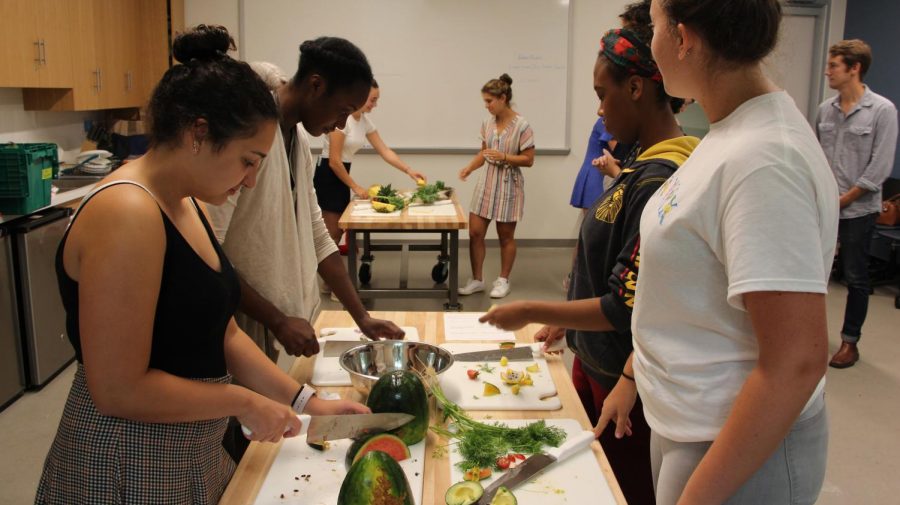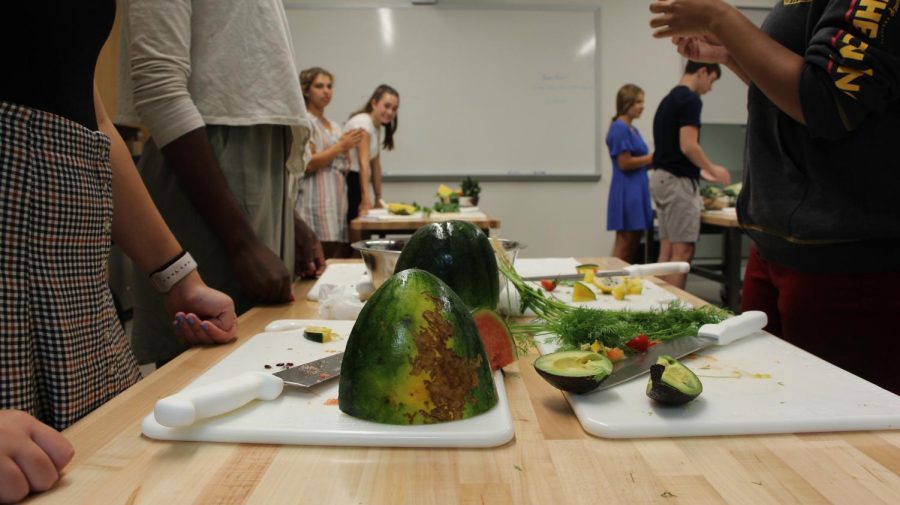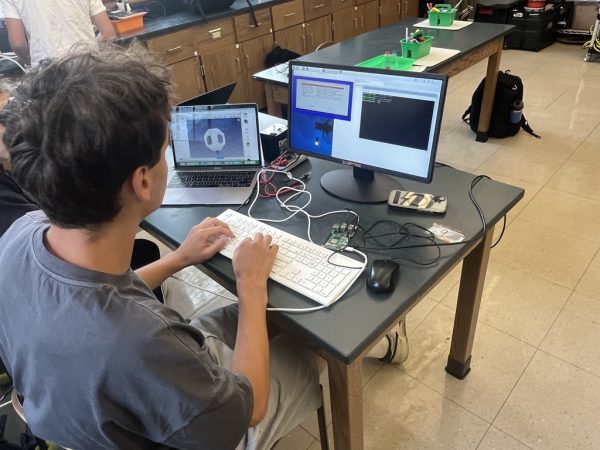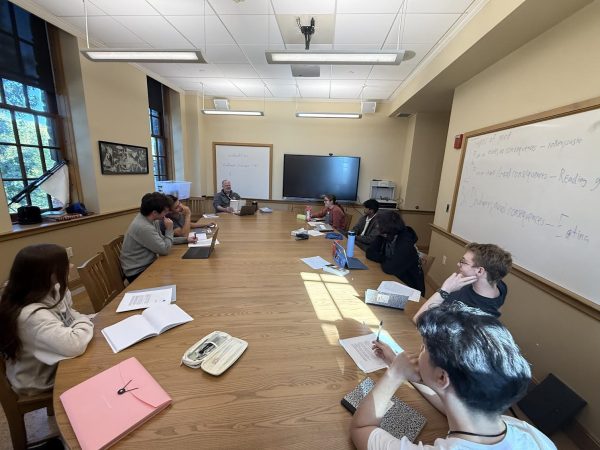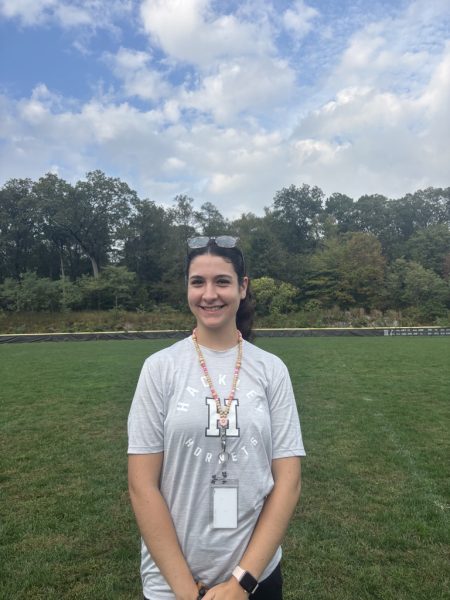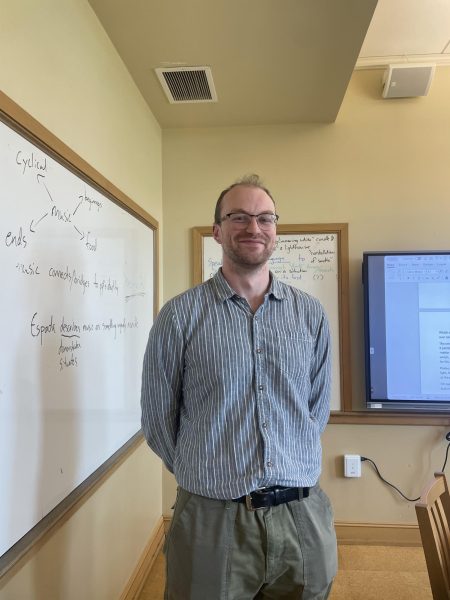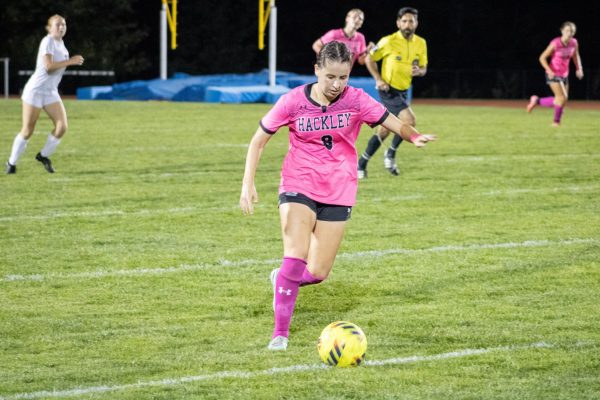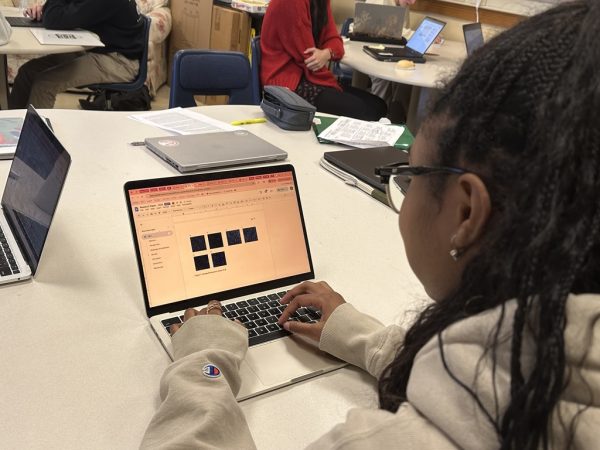Food and power: a new interdisciplinary course offered at Hackley
Credit: Julia Thomson
Students cut and prepare the fresh fruits and vegetables that they will put in their salads. After gathering the ingredients, the Stone Barns educators discussed the concept of emulsions and making a dressing that has a healthy balance of oil and an emulsifier.
One of Hackley’s new classes this year, “Food and Power”, offers a refreshing interdisciplinary approach that allows students to explore various interests through hands-on experiences such as cooking, gardening, and interactive projects. The course is described as an exploration of the science and politics behind what we eat and relationships to power, culture, and the environment. Food and Power is open to all juniors and seniors and is taught by the head of the science department: Ms. Hannon.
“I wanted to try something new for my last year of high school, and it seemed like a fun way to break up my regular academic schedule,” said senior Alex Cohen.
The curriculum is inspired by a partnership with the Stone Barns Center for Food and Agriculture in Tarrytown, just down the road from Hackley. Representatives from the Stone Barns education department came to campus on September 12th to lead a lesson focusing primarily on understanding the difference between fruits and vegetables and identifying the six parts of a plant. Using fresh produce, much of which was grown locally at Stone Barns, the students made their own salad and homemade dressing, discussing the different flavors and combinations.
The partnership with Stone Barns allows the class to hear and see examples of farm products and the work that goes into understanding our planet and both the role and relationship humans have with the environment. Education manager, Kiera Foti, talked about their mission at Stone Barns and the lessons they are trying to spread to children and adults everywhere.
“Our mission is to build a more healthy and sustainable food system in this country. Another word we often use to describe the way we grow food is regenerative, meaning that while we’re growing food and taking nutrients from the soil and working the land with machinery and hand tools, we have to think about how we give back to the land while we take,” she said.
Another educator from Stone Barns who visited the Food and Power class shared her background and love for agriculture and the experiences she had growing up in a small town in Mexico.
“I am indigenous,” she said, “all of our culture and routine is very farm to table like. I went from being a pre-med student to going back to my roots to study the culinary arts and agriculture.”
The Stone Barns educators demonstrate a genuine love and interest for food and its connection to culture and our daily lives. In addition to spreading their mission of sustainability and giving back to the earth, Stone Barns aims to educate students like those in Hackley’s Food and Power class about why food matters and how it shapes our different cultures.
As the Stone Barns website broadcasts, “Our future hinges on a new generation of farmers.” Why not start at Hackley? The students of Food and Power plan to lead their own Ex Day classes later in the year to share their acquired knowledge of food’s application to different parts of daily life, and the ways in which we can be more sustainable and aware as a community.

